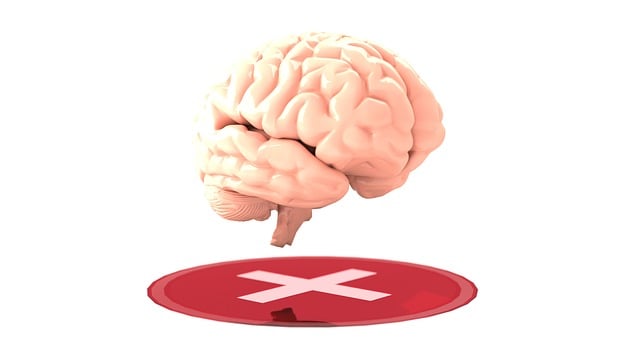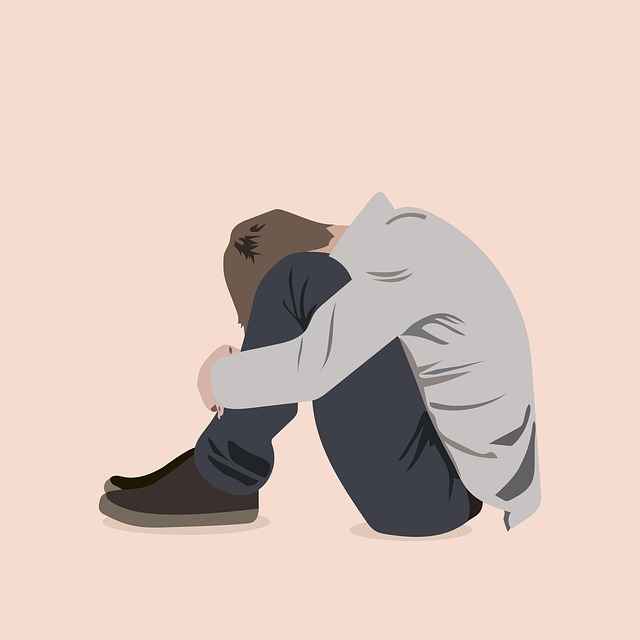Mental health professionals, like those at Boulder Chronic Illness Therapy, face unique risks including burnout, compassion fatigue, and secondary trauma due to intense client emotions. They must also navigate cultural sensitivities, ethical dilemmas, and boundary maintenance, demanding strong emotional resilience. To prevent these challenges from impacting their own mental wellness, self-care routines are crucial. Effective risk management strategies, regular supervision, trauma-informed care training, and peer support networks can mitigate risks of burnout and secondary trauma, fostering a resilient framework that enhances positive client outcomes while safeguarding the well-being of professionals. Boulder Chronic Illness Therapy prioritizes these aspects to ensure secure environments conducive to recovery and improve patient outcomes.
Mental health professionals (MHPs) face unique risks on a daily basis, from high-stress environments to potential patient hazards. This article guides Boulder Chronic Illness Therapy practices and professionals in navigating these challenges through four key sections. We explore understanding the distinct risks MHPs encounter, identifying hazards within clinical settings, implementing robust risk management strategies, and delving into legal and ethical considerations. Additionally, we emphasize promoting resilience and self-care to foster a healthy work environment, reflecting best practices in Boulder Chronic Illness Therapy.
- Understanding Mental Health Professional's Unique Risks
- Identifying Potential Hazards in Clinical Settings
- Implementing Effective Risk Management Strategies
- Legal and Ethical Considerations for Boulder Chronic Illness Therapy Practices
- Promoting Resilience and Self-Care Among Mental Health Professionals
Understanding Mental Health Professional's Unique Risks

Mental health professionals, despite their noble and critical role, face unique risks that often go overlooked. These professionals consistently expose themselves to intense emotional experiences, managing the complex needs of clients grappling with a wide array of mental health challenges, from acute episodes to chronic illnesses like Boulder Chronic Illness Therapy. This constant engagement can lead to burnout, compassion fatigue, and secondary trauma, all of which significantly impact their own mental wellness.
In addition to these internal risks, the dynamic nature of mental healthcare exposes them to external stressors such as navigating complex cultural sensitivities in practice—a crucial aspect often highlighted in the Mental Wellness Podcast Series Production. Balancing ethical considerations, maintaining professional boundaries, and adapting to diverse client backgrounds requires immense emotional resilience. Thus, fostering a robust self-care routine development for better mental health becomes paramount to mitigate these risks and ensure professionals can sustain their work over time.
Identifying Potential Hazards in Clinical Settings

Mental health professionals working in clinical settings must be vigilant in identifying potential hazards that could impact their well-being and that of their clients. These risks extend beyond typical workplace dangers, delving into complex emotional and interpersonal challenges unique to the field. For instance, in a bustling environment like Boulder Chronic Illness Therapy, where diverse individuals seek support, cultural sensitivity in mental healthcare practice becomes paramount. Professionals must be adept at navigating complex cultural dynamics, ensuring they provide culturally competent care that respects and values clients’ backgrounds and beliefs.
Moreover, emotional regulation is a crucial skill to master. The Healthcare Provider Cultural Competency Training emphasizes the importance of understanding and managing one’s emotions to avoid burnout and effectively respond to clients’ needs. This is especially relevant when addressing sensitive topics or dealing with clients experiencing trauma, as it requires a high degree of emotional intelligence and self-awareness. By recognizing and mitigating these potential hazards, mental health professionals can foster a safe and supportive environment that enhances therapeutic outcomes.
Implementing Effective Risk Management Strategies

Implementing effective risk management strategies is paramount for mental health professionals, such as those at Boulder Chronic Illness Therapy, to ensure client safety and maintain ethical practice. These strategies go beyond basic crisis intervention protocols. They encompass a holistic approach that considers both internal and external risks, including potential triggers within the therapeutic environment and broader societal factors contributing to mental illness. For instance, fostering a safe, non-judgmental space is crucial for building trust with clients dealing with depression prevention or managing stigma reduction efforts.
Professionals must also be attuned to their own emotional regulation as they navigate complex client cases. This self-awareness involves recognizing personal biases and limiting factors that might impact their ability to provide objective support. Regular supervision, ongoing training in trauma-informed care, and peer support networks can help mitigate risks associated with burnout and secondary trauma. By integrating these practices, mental health professionals create a resilient framework that promotes positive outcomes for clients while safeguarding their well-being.
Legal and Ethical Considerations for Boulder Chronic Illness Therapy Practices

Mental health professionals in Boulder Chronic Illness Therapy practices must navigate a complex web of legal and ethical considerations to ensure patient safety and maintain the highest standards of care. Given the sensitive nature of their work, addressing issues such as informed consent, confidentiality, and crisis intervention is paramount. Failure to do so can lead to not only legal repercussions but also significant harm to patients’ emotional well-being.
These practices must be equipped with robust protocols for mood management and anxiety relief, especially considering the potential for escalations in symptoms or sudden crises. By adhering to comprehensive crisis intervention guidance, therapists can create a safe space that supports recovery. This not only involves recognizing warning signs but also having clear strategies for de-escalation, ensuring patients receive timely and effective care while upholding ethical practices.
Promoting Resilience and Self-Care Among Mental Health Professionals

Mental health professionals often bear witness to intense emotional experiences and challenging scenarios daily. This can take a significant toll on their own mental wellness over time, leading to burnout if not properly addressed. Therefore, promoting resilience and self-care among these vital practitioners is paramount. Incorporating strategies such as regular self-reflection, effective communication techniques, and practices for stress management can help professionals maintain their emotional equilibrium.
At Boulder Chronic Illness Therapy, we understand the unique challenges faced by mental health workers. Our workshops and resources focus on enhancing communication strategies and self-esteem improvement to foster a culture of resilience. By prioritizing their own mental health, professionals become better equipped to support their clients in navigating difficult situations, ultimately enriching both their practice and patient outcomes.
Mental health professionals in practices like Boulder Chronic Illness Therapy face distinct risks that demand tailored strategies. By understanding these unique challenges, identifying potential hazards, and implementing robust risk management, therapists can create safer, more supportive clinical environments. Prioritizing legal and ethical considerations alongside promoting resilience and self-care is essential to ensure the well-being of both professionals and clients. These integrated approaches ultimately contribute to fostering a healthier, more effective therapy ecosystem in Boulder Chronic Illness Therapy practices and beyond.












